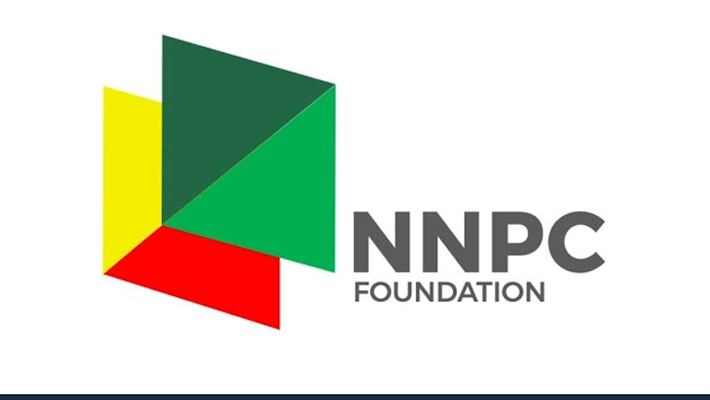BUA Foods Plc and Dangote Sugar Plc collectively incurred a significant expenditure of N661.06bn on input costs in the first half of 2024, marking a substantial 137.74 per cent increase from the N278.06bn spent during the corresponding period in 2023.
This input cost represents 90.38 per cent of the total cost of sales, which amounted to N731.44bn for these companies during the review period. This increase in costs is attributed to the high inflationary environment in 2024, which has led to a general rise in the cost of goods and services across Nigeria.
The financial details are drawn from the unaudited half-year results of the companies.
Additionally, the amount spent on input costs reflects 68.29 per cent of the total revenue of N968.02bn recorded by the firms during the period, a sharp rise from N523.71bn in 2023.
BUA Foods saw its revenue rise by 109.51 per cent, reaching N672.39bn compared to N320.93bn in 2023. Its total cost of sales increased by 141.34 per cent, from N188.097bn to N453.95bn in H1 2024, consuming 67.51 per cent of the company’s revenue.
Similarly, Dangote Sugar Plc reported a 45.78 per cent increase in revenue, reaching N295.62bn from N202.78bn in 2023.
However, due to high operational expenses, its cost of sales rose by 91.90 per cent, climbing from N144.59bn in 2023 to N277.49bn in 2024. The cost of sales accounted for 93.86 per cent of the company’s total revenue.
Key factors contributing to these cost pressures include the removal of fuel subsidies, exchange rate harmonization, and the depreciation of the Naira.
Additionally, macroeconomic inflationary pressures, particularly in the domestic market, exacerbated by rising average inflation rates, added to the challenges faced by these firms.
In the manufacturing sector, the reliance on self-generated power due to inadequate state power grid infrastructure remains a significant burden.
Despite the privatization of the power sector nearly a decade ago, there has been minimal improvement in electricity supply for manufacturers, compelling them to depend on costly self-generation. Stable and reliable power infrastructure is critical to enhancing the manufacturing sector and stimulating job creation in Nigeria.
The country’s inflation rate, as reported by the National Bureau of Statistics (NBS), rose to 32.70 per cent in September 2024, up from 32.15 per cent in August 2024.
This 0.55 per cent month-on-month increase was primarily driven by higher transportation costs and rising food prices, following the hike in petrol prices by the Nigerian National Petroleum Corporation Limited (NNPCL) in early September.
On a year-on-year basis, the inflation rate for September 2024 was 5.98 percentage points higher than the 26.72 per cent recorded in September 2023. Additionally, the headline inflation rate on a month-to-month basis in September 2024 was 2.52 per cent, a slight increase from 2.22 per cent in August 2024, reflecting a faster rise in the average price level.
Core inflation, which excludes volatile agricultural products and energy prices, stood at 27.43 per cent year-on-year in September 2024, compared to 21.84 per cent in September 2023.
The most significant price increases were recorded in housing rents, intercity bus fares, taxi fares, and dining at local restaurants.
The month-on-month core inflation rate for September 2024 was 2.10 per cent, slightly lower than the 2.27 per cent recorded in August 2024.
Since the end of the first half of 2023, the naira has experienced a substantial depreciation against the dollar. On June 30, 2023, the naira traded at N769.25 per dollar.
One year later, it closed the first half of the year at N1,503 per dollar, representing a 95 per cent depreciation.
The weakening of the naira has led to increased costs for manufacturers, particularly in sectors reliant on imported inputs.
Since diesel is imported using U.S. dollars and gas is priced in dollars, the cost of these products has risen significantly, contributing to the overall spike in input costs for manufacturers.
There is fear that the surge may lead to more cost pressure on manufacturers, especially on gas and other raw materials. To mitigate this risk, most cement manufacturers increased prices.
Chief Executive Officer, Ravindra Singhvi said, “Our business encountered considerable challenges due to a confluence of soaring inflation, increased borrowing costs, and a further weakening of the currency, which collectively impacted our bottom-line.
“Despite these obstacles, we achieved a robust revenue growth of 45.8 per cent, reaching N295.6bn, primarily due to price adjustments implemented in response to heightened cost pressures.
“However, we incurred a loss after tax of N144bn primarily attributable to non-cash foreign exchange losses amounting to N193.7bn, exacerbated by the significant year-on-year devaluation of the Naira. Excluding these foreign exchange losses, our recurring profit after tax stood at N45.2bn.
“To address the challenges posed by currency devaluation, we have intensified our focus on advancing the Backward Integration Project for sugar production in Nigeria.
“We have made substantial investments and will continue to expand our local sugar production capacity. DSR is significantly increasing production capacity at its Numan plantation to 9,800TCD, and we are in the process of raising funds for the Nasarawa Backward Integration Project.
“Despite facing short-term challenges in the first half of the year, we reached a significant milestone in repositioning the business for growth.
“We successfully established a N200bn Bond Programme, which is a key element of our broader strategy to support our backward integration plan. In the medium term, the factory will generate 32 megawatts of electricity using new turbines and two high-pressure boilers.
“It will also enable the production of ethanol and animal feed from by-products like molasses and bagasse. These initiatives are designed to diversify our revenue streams and reduce the risk associated with exchange rate fluctuations”.
However, despite that the company faced rising costs. Managing Director of BUA Foods, Ayodele Abioye, said, “The first half of the year has been one of significant resilience and achievements for our company.
“We attained a robust financial performance, with total revenue increasing by 110 per cent to N672.3bn compared to the same period last year.
“Our gross profit stands at N218.4bn, reflecting a growth of 64 per cent. This solid performance is a testament to the efficacy of our strategic initiatives, operational efficiency, and unwavering dedication of our board, management, and other members of staff.
“During this period, we have made significant strides in executing our strategic plans, successfully launching new products, specifically, macaroni, premium pasta, and semolina to meet the yearnings of our customers.
“Our diversified portfolio and expansion into new markets impacted revenue growth while strengthening our partnership with key stakeholders We also maintained a strong focus on cost optimisation, resulting in sustained margins and profitability.”
On projection for the second half, Abioye said, “Looking ahead, we remain confident in our ability to navigate the challenges and opportunities in the market. We will continue to leverage our strong and orchestrated supply chain system to deliver a great financial performance in line with our strategic vision for sustainable growth and value creation for all stakeholders”.












